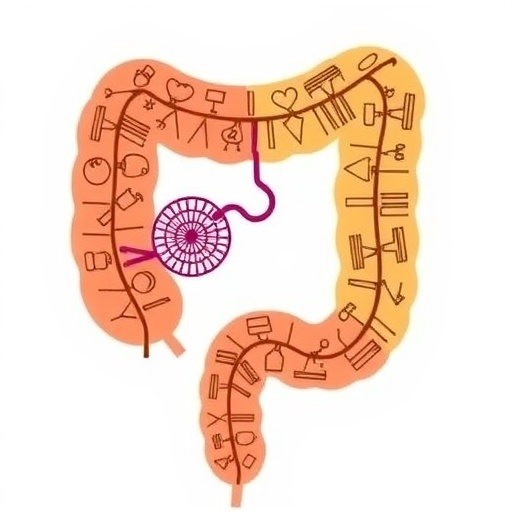Boston University has embarked on a pioneering initiative to address a critical gap in healthcare access and quality for autistic adults, particularly focusing on colonoscopy procedures. This effort is supported by the Eugene Washington PCORI Engagement Award Program, overseen by the Patient-Centered Outcomes Research Institute (PCORI), a leading entity dedicated to promoting patient-centered clinical research. Spearheaded by Dr. Emily Rothman, Professor and Chair of the Department of Occupational Therapy at BU’s Sargent College, the project confronts the striking disparity in gastrointestinal healthcare utilization among autistic individuals, with the objective of transforming both research and practice in this field.
Autistic adults exhibit a significantly higher prevalence of gastrointestinal conditions such as inflammatory bowel disease (IBD) and Crohn’s disease compared to the general population. Despite this elevated risk, these individuals undergo colonoscopies far less frequently than their non-autistic counterparts. Colonoscopy remains an essential diagnostic and preventive tool, vital for early detection and management of colorectal cancer and other serious GI conditions. This discrepancy not only jeopardizes the health outcomes of autistic adults but also signals profound gaps in healthcare accessibility, communication, and patient engagement.
The foundation of this initiative is the recognition that many autistic adults encounter unique challenges when preparing for and undergoing colonoscopies. Sensory sensitivities, communication barriers, and procedural anxiety contribute to avoidance and limited participation. Dr. Rothman emphasizes that by integrating the lived experiences of autistic individuals into research agendas, the healthcare system can better accommodate their needs. This ethos of patient-centered care is central to the project’s methodology, which actively involves autistic adults as partners rather than passive subjects.
Central to the project’s strategy is the formation of a national advisory board consisting of autistic adults who have direct experience with colonoscopy procedures. This board will play a pivotal role in steering the development of a patient-centered comparative clinical effectiveness research (CER) agenda—a structured approach to determining which healthcare interventions deliver the best outcomes for specific patient populations. By ensuring that research priorities reflect the concerns and insights of autistic individuals, the project aims to generate actionable knowledge that can drive tangible improvements in clinical practice.
The research design embraces community-based participatory research methods, a collaborative approach that bridges the gap between researchers and the communities they serve. The initial phase involves training autistic adults in the principles of patient-centered research, equipping them with the tools to contribute meaningfully to scientific inquiry. This capacity-building step not only empowers participants but also enriches the research process by incorporating authentic patient perspectives from inception to dissemination.
Subsequent phases entail conducting comprehensive focus groups composed of autistic adults, gastroenterologists, and caregivers. These discussions seek to elucidate the multifaceted barriers to colonoscopy access and positive patient experience. Feedback from these sessions will inform the co-creation of the CER agenda, enabling researchers to pinpoint urgent research questions and optimize intervention strategies that accommodate sensory, cognitive, and emotional needs specific to the autistic community.
A prominent feature of the project is its multidisciplinary leadership. Dr. Adam Stein, a gastrointestinal specialist at Northwestern Medicine, and Dr. Steven Lord, an internal medicine physician at Mt. Auburn Hospital, bring clinical expertise, while Scarlett Shiloh, an autistic advocate with personal experience navigating regular colonoscopies due to Lynch syndrome, provides invaluable patient insight. This fusion of clinical knowledge and lived experience underlines the project’s commitment to authentic, patient-driven research.
This innovative project is part of a broader portfolio by PCORI aimed at enhancing the capacity of patients, caregivers, clinicians, and stakeholders to actively engage in all phases of patient-centered CER. Through the Engagement Award Program, PCORI fosters a dynamic network that leverages lived experience to ensure research reflects real-world priorities, ultimately leading to care that is more relevant, effective, and equitable.
Boston University’s initiative also resonates with its long-standing dedication to health equity and community-engaged research, particularly within the neurodiverse population. Dr. Rothman’s history of leading impactful studies on autistic health forms a robust foundation for this endeavor, signaling a sustained commitment to addressing systemic health disparities through innovative, participatory approaches.
Key institutional partners, including Boston Medical Center and the Association for Autism and Neurodiversity (AANE), will play vital roles in the dissemination and translation of research findings. Their involvement ensures that insights generated by the project reach a wide array of clinicians, researchers, policymakers, and communities, fostering the uptake of best practices and influencing larger scale health system reforms.
Ultimately, this project seeks to engineer a paradigm shift in how gastroenterological care is delivered to autistic adults. By illuminating the unique challenges they face and co-designing research priorities, the project endeavors to establish a foundation for extensive CER that improves colonoscopy outcomes, patient satisfaction, and overall healthcare engagement within this underserved population.
In tackling this urgent and overlooked healthcare issue, the project stands not only as a beacon for future patient-centered research frameworks but also as a compelling example of how amplifying patient voices can unleash transformative change. This work promises to catalyze meaningful improvements in clinical practice and policy, opening avenues to reduce healthcare disparities and enhance quality of life for autistic adults across the United States.
Subject of Research: Improving colonoscopy access, participation, and patient experience for autistic adults through patient-centered comparative clinical effectiveness research.
Article Title: (Not specified)
News Publication Date: (Not specified)
Web References: (Not specified)
References: (Not specified)
Image Credits: (Not specified)
Keywords: Autism, Colon cancer, Patient-centered outcomes research, Gastrointestinal health, Comparative clinical effectiveness research, Community-based participatory research, Neurodiversity, Health disparities




